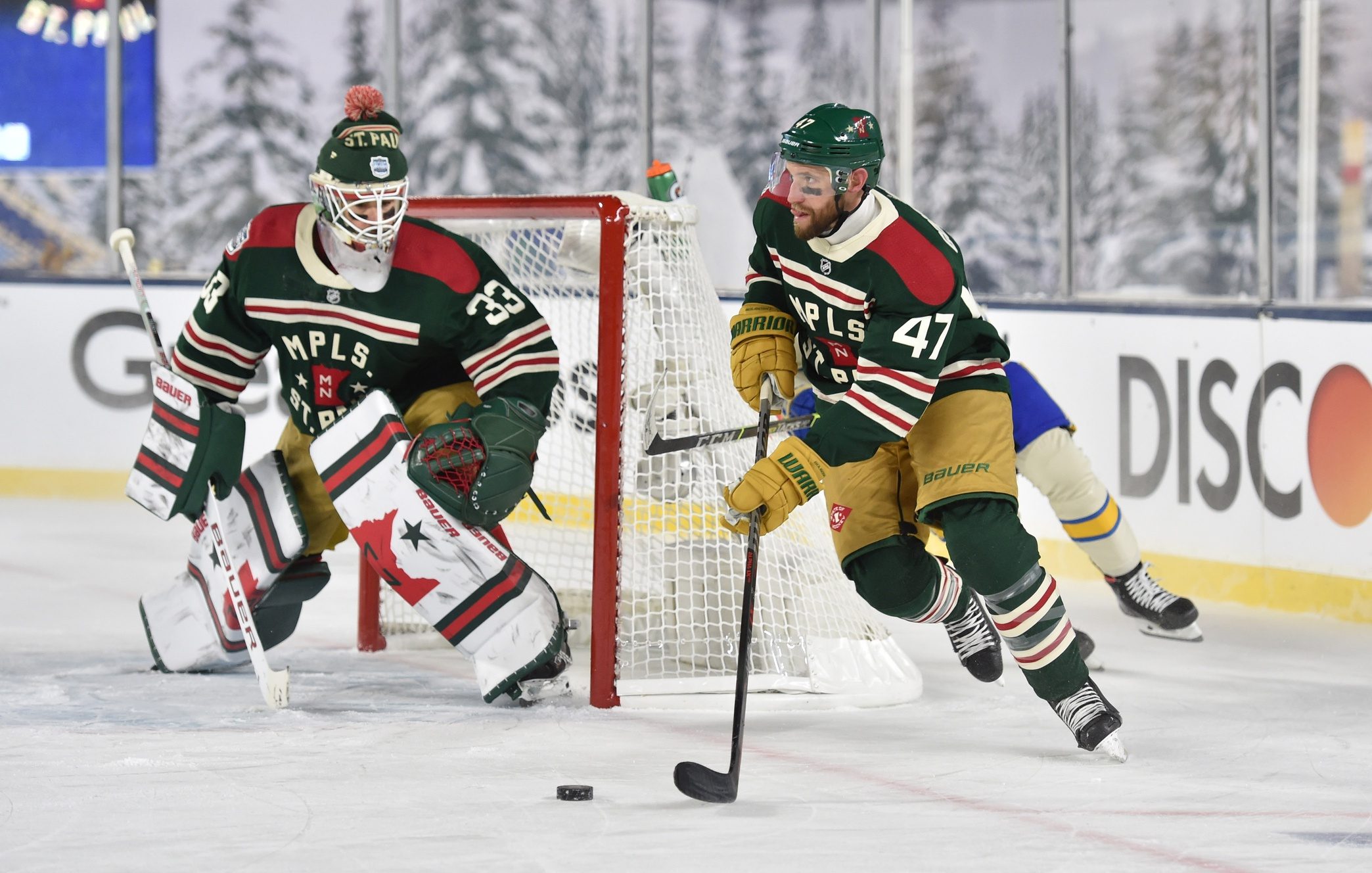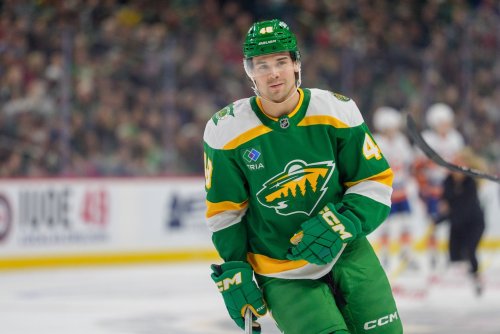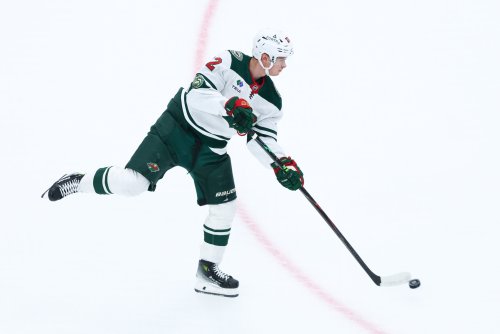
The Minnesota Wild bought out Ryan Suter and lost Carson Soucy to the Seattle Kraken via expansion, forcing them to address their defensive holes in free agency last summer. They landed on Minnesota native Alex Goligoski and depth defensemen Dmitry Kulikov and Jon Merrill.
There were still concerns going into the season about whether Minnesota's additions would live up to the standard set for Wild defensemen. Suter was still a quality top-four defenseman, and Soucy established himself as an underrated depth piece with potential.
Through 42 games, it's clear how instrumental the additions have been. It's ironic, too. A bonkers free-agent market forced Minnesota to settle for less sought-after defensemen because many blueliners were out of their price range.
That's the reality of buying out two franchise cornerstones. The organization must navigate the pending cap troubles with precision and the future in mind. That means losing good players and missing out on others in free agency. Luckily for the Wild, they possess one of the league's best prospect pipelines. The influx of young players on entry-level deals will help mitigate their cap issues.
It's clear the organization chose the right defensemen in free agency because the Wild's defensive corps has flourished when healthy. Given the number of bad contracts handed out last summer, you can argue Minnesota won the free-agent market for defensemen.
Kulikov and Merrill have admirably replaced Soucy and Ian Cole on the third pair. Their success has overshadowed Goligoski's strong play. Any player who skates alongside Jared Spurgeon on the top pair is bound to get overlooked.
Still, Goligoski is not only producing as a top-pair defenseman. He's quietly having one of the most productive seasons of his career.
The 36-year-old defenseman has registered 25 points in 37 games. Among defensemen who have logged a minimum of 300 minutes this season, Goligoski's 1.64 points per 60 are the fourth-highest rate in the league. He's been worth 1.1 wins above replacement, as well. The veteran defenseman has replaced Suter with aplomb, posting solid numbers.
The pair has a ridiculous 69 percent expected goals rate to go along with their 57 percent expected goal share at 5-on-5. They've dominated their opponents in every area. There's a strong case for Goligoski to stay in Minnesota.
However, the Wild may not give Goligoski an extension, even though he's exceeded expectations. There's still a tough decision ahead about whether or not it's in the Wild's best interest.
Next season will be his age-37 season, so there's certainly a chance he faces regression. Banking on Goligoski to repeat this season is risky. And with Spurgeon driving the play on the top pair, the possibility of a younger option on the left side sounds more promising.
Will Goligoski re-sign next season for considerably less than he got this year? He may, given that the Wild offered him $5 million last year despite his numbers in 2020-21.
Minnesota has already begun working on next year's roster by signing Merill and Jordan Greenway to three-year deals midseason. As next season's spots fill up, it becomes less likely that the Wild will extend him.
Minnesota could be weighing their options right now. Extending him will inevitably come with risk, so the Wild may shy away from it because of their cap situation. And if he was going to take a hometown discount for a second year, it's odd that Minnesota hasn't extended him yet.
Given the slim defensive free-agent crop next year on the left side, moving on from the veteran and signing someone in free agency doesn't appear to be the plan. Unless the organization thinks Hampus Lindholm or Nick Leddy can offer more value in the same price range as Goligoski, the Wild aren't likely to use free agency to replace him. Lindholm and Leddy are the only two realistic options on the left side. Trading for a defenseman doesn't make a lot of sense, either.
Spurgeon, Jonas Brodin, Kulikov, and Merril will be on next year's roster. Also, Calen Addison should be in the mix, leaving one remaining spot.
Therefore, a Goligoski extension is contingent on whether Minnesota moves Kevin Fiala or Matt Dumba. If the Wild trade Fiala and keep Dumba, they don't need to re-sign Goligoski. Conversely, if they choose to trade Dumba to retain Fiala, they'll need to replace Dumba on the blueline.
With few other internal options after Addison, they'd need to extend Goligoski or acquire a defenseman via free agency or trade.
It's a complicated situation considering Goligoski is liable to decline, and there are very few intriguing free agents available next summer. Therefore, retaining Fiala has to be the No. 1 priority, even at the expense of Dumba.
Given the Wild's limited options for replacing Goligoski and the pending cap troubles, taking a gamble on the veteran defenseman for another year must be considered.
All Data Via Evolving-Hockey, Natural Stat Trick and Hockey-Reference
Think you could write a story like this? Hockey Wilderness wants you to develop your voice, find an audience, and we'll pay you to do it. Just fill out this form.







Recommended Comments
There are no comments to display.
Join the conversation
You can post now and register later. If you have an account, sign in now to post with your account.
Note: Your post will require moderator approval before it will be visible.